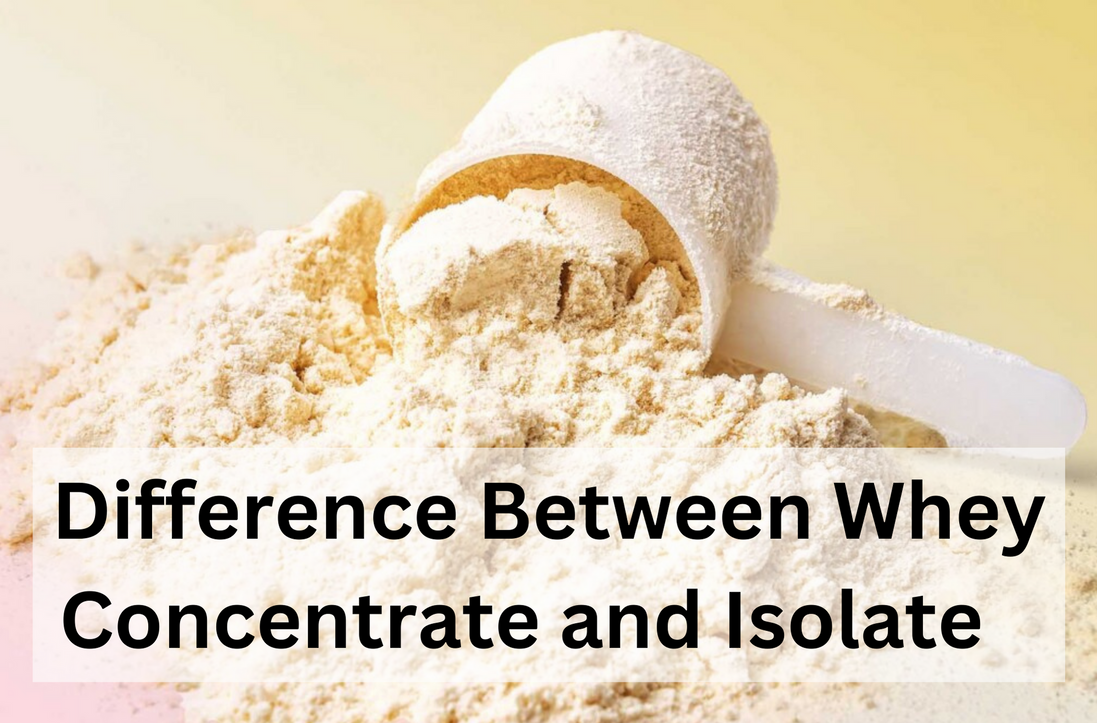Posted by Kaha Nutrition on 23rd Apr 2023
Whey Isolate vs. Whey Concentrate: Which Protein is Right for You?
As an avid fitness enthusiast, you've probably come across the terms "whey isolate" and "whey concentrate" when searching for the perfect protein supplement. With so many options on the market, it can be challenging to decipher the differences and determine which one best suits your needs. In this blog post, we'll break down the differences between whey isolate and whey concentrate and outline the benefits of both to help you make an informed decision.
What are Whey Isolate and Whey Concentrate?
Whey protein is derived from milk during the cheese-making process. It is a complete protein source, containing all nine essential amino acids required for muscle growth and repair. There are two primary types of whey protein: whey isolate and whey concentrate.
1. Whey Isolate
Whey isolate is a purer form of whey protein, containing more than 90% protein content by weight. It undergoes a more extensive filtration process to remove most of the fat, lactose, and carbohydrates, resulting in a leaner product. This is an ideal choice for those looking for a low-calorie, low-carb, and lactose-free protein supplement.
Benefits of Whey Isolate:
- High protein content: With over 90% protein, whey isolate is an excellent choice for athletes and bodybuilders looking to increase their protein intake for muscle growth and recovery.
- Lactose-free: Those who are lactose intolerant or have a sensitivity to lactose can safely consume whey isolate without experiencing digestive issues.
- Rapid absorption: The purity of whey isolate allows for quicker absorption into the bloodstream, ensuring that essential amino acids are available for muscle repair and growth post-workout.
- Low in fat and carbohydrates: For those following a low-carb or low-fat diet, whey isolate is an ideal protein supplement.
2. Whey Concentrate
Whey concentrate, on the other hand, typically contains 70-80% protein by weight. It undergoes a less intensive filtration process, retaining more of the naturally occurring fat, lactose, and carbohydrates. This results in a more calorie-dense product, which may be preferred by those looking to cut cravings and stay satiated for longer.
Benefits of Whey Concentrate:
- More affordable: Whey concentrate is generally less expensive than whey isolate, making it a budget-friendly choice for those seeking a high-quality protein source.
- Rich in immune-boosting compounds: Whey concentrate retains more of the bioactive compounds found in milk, such as immunoglobulins and lactoferrin, which can support immune health.
- Creamier taste and texture: The additional fat and carbohydrates in whey concentrate contribute to a creamier, more satisfying taste and texture, making it more enjoyable to consume.
- Balanced nutrient profile: Whey concentrate offers a balance of protein, carbohydrates, and fats, making it suitable for those looking to cut cravings and feel satiated.
Conclusion
Both whey isolate and whey concentrate offer unique benefits, making them suitable for different fitness goals and dietary preferences. If you're looking for a leaner, lactose-free protein source with rapid absorption, whey isolate may be the better choice. On the other hand, if you're looking for a more budget-friendly option with a balanced nutrient profile and immune-boosting compounds, whey concentrate could be the right fit.

